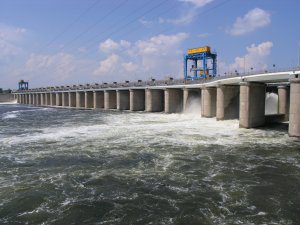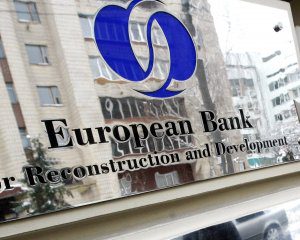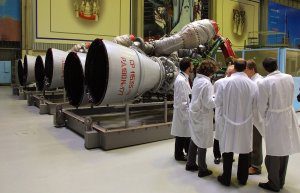
KYIV. July 2 (Interfax-Ukraine) – The berry market in Ukraine which grew over the past five years by 7-1% every year, is still unsaturated, as demand for berries exceeds their real supply, according to profile experts.
“Today the fields with blueberry are 800-1,000 hectares. At least 6,000-8,000 ha is required to saturate the Ukrainian market,” Director of Brusvyana Ltd. Liliana Dmytriyeva said at a press conference at Interfax-Ukraine on Wednesday.
Private entrepreneur Pavlo Zbynsky, who grows blueberries, said that high-mountain blueberry is the most promising berry.
“The price is from $3 per kilogram to 10$ per kilogram, and the payback period of the project to grow is four years,” he said.
Director of Brusvyana Volodymyr Dmytriyev said that the popularity of blueberry is growing thanks to its transportation quality. The cooled berry can be stored from seven days to one month.
Dmytriyeva added that 51% of blueberries are sold for fresh consumption and 49% are sent to freezing and processing
Raspberries and currants also exhibited good growth over the past five years, however strawberries were less attractive, the conference participants said.
They said that fields with berries in the country in 2013 totaled 22,000 hectares, and they do not have the updated statistics.
They said that despite the prospects of the market, the growth of the berry business in 2015 slowed due to the unstable political and economic situation in the country and the temporary suspension of new berry projects.
“Berries are an expensive product. Its consumption at present is focused in Kyiv and other large cities. Earlier, the key districts for selling berries were also Crimea and eastern Ukraine. The major part of producers is located in Zhytomyr, Rivne, Volyn and Kyiv regions,” Dmytriyeva said.
The press conference participants said that growth of berry business is restricted by problems which it faces at the stage of enlargement: a lack of financing, administrative and tax restrictions, the necessity of certifying products and receiving patents, problems of transportation, the absence of wide retail trade and the impossibility of processing large volumes of berries.
Dmytriyeva said that it is better to boost exports where Ukraine has achieved the third position on the global frozen berry market. The most promising countries for exports are Asian and Middle East countries, while the markets of the EU countries are saturated with large and smooth supplies from Poland, Lithuania, and other countries.
Dmytriyeva said that on July 10 a conference to discuss the prospects of developing the berry business and related problems will be held in Bucha, Kyiv region.

KYIV. July 2 (Interfax-Ukraine) – Bank Khreschatyk (Kyiv) plans to increase its charter capital by 2.5 times or UAH 1.5 billion, to UAH 2.529 billion via an additional issue of shares.
The bank said in a press release that its shareholders will discuss the issue at a general meeting scheduled for September 4.
As reported, at a general meeting held on April 21, the bank’s shareholders approved the results of the 10th issue of shares: the bank’s charter capital was increased by UAH 200 million or 24.1%, to UAH 1.029 billion.
Bank Khreschatyk was founded in 1993. The main financial department of Kyiv City State Administration as of early April 2015 owned a 24.9397% stake in the bank, Ukrfinkom 37.4427% and Market Invest Group Ltd. 21.032%.
The bank ranked 19th among 133 operating banks as of April 1, 2015, in terms of total assets worth UAH 10.278 billion, according to the National Bank of Ukraine.

KYIV. July 2 (Interfax-Ukraine) – The European Investment Bank (EIB) is mulling the provision of EUR 400 million to public joint-stock company Ukrhydroenergo to build the Kaniv hydroelectric pump-storage plant, the bank said in a post on its website.
The total cost of the project is EUR 1.283 billion.
As reported, Ukrhydroenergo plans to raise 70% of the funds to be used to build the plant from four banks – the EIB, the World Bank, the European Bank for Reconstruction and Development (EBRD) and Deutsche Bank.
The capacity of Kaniv hydroelectric pumped storage power plant will be 1 GW in generating operations, its construction will take six and a half years, and the payback period is about ten and a half years.

KYIV. July 2 (Interfax-Ukraine) – The European Bank for Reconstruction and Development (EBRD) is ready to discuss Ukraine’s proposals to help the country conduct privatization, and is also ready to assist regarding supplies of natural gas from the European Union, EBRD President Suma Chakrabarti told reporters after a meeting with the Ukrainian president and prime minister in Kyiv on Wednesday.
“As I told the president, we want to provide large aid to Ukraine in the privatization issue, but we should clearly know what will be sold, in what order and over what period,” he said.
Chakrabarti said that the bank has drawn up a large study on privatization in many countries of the region, and its aid on the issue could be effective.
When asked about gas supplies from Europe, the EBRD president said that in 2014 the bank decided not to support gas supplies from Slovakia to Ukraine.
“We’d like to help so that gas is supplied from the EU,” he said.
Chakrabarti said that EBRD is also interested in continuing cooperation with Ukraine in the power sector, in particular, the bank is ready to discus its participation jointly with the European Investment Bank (EIB) in a project to construct the Kaniv pump-storage plant.
“I will ask that in the future support is provided to the project,” he said.
He said that there are many opportunities for investing in Ukraine in other sectors, especially in agriculture.
Commenting on the situation in the banking system of Ukraine, Chakrabarti welcomed the work of the National Bank of Ukraine (NBU) to cleanse the system, the reduction of the number of banks from 170 to around 150 thanks to the withdrawal of financial institutions that belonged to corrupt oligarchs who used them as purses and did not take into account the interests of citizens.
He said that reforms in the banking area should continue, the sector should be additionally capitalized and only strong banks that are not affiliated with corrupted oligarchs should remain on the market.

KYIV. July 1 (Interfax-Ukraine) – Ukraine has fulfilled virtually every requirement of the International Monetary Fund (IMF) for the second tranche under the Extended Fund Facility (EFF) program, according to Vice Governor of the National Bank of Ukraine (NBU) Dmytro Solohub.
“We’re glad to see further financial stabilization. We’re glad that Ukraine has fulfilled almost all the requirements of the International Monetary Fund, and there will be a meeting of the IMF Executive Board very soon,” he said at a press conference on Wednesday.
According to him, Ukraine is meeting its obligations to international donors, and the reforms stipulated in the EFF are being implemented.
As reported, Finance Minister Natalie Jaresko said in the middle of June that she was expecting a decision from the IMF on the allocation of $1.7 billion in the second tranche under the EFF in the middle of July.

KYIV. July 1 (Interfax-Ukraine) – State enterprise Pivdenne Design Bureau (Dnipropetrovsk) is working on a plan to establish cooperation with the United States in building rocket engines, Pivdenne CEO and Chief Designer Oleksandr Dehtiarev has said.
The Ukrainian developer is ready to become a partner in the project initiated by the U.S. government to build rocket engines to replace the Russian built RD-180 used in American carrier rockets.
He said that over the past five years, Pivdenne has been developing liquid-propellant rocket engines for the first stages of carrier rockets that could be effectively used in U.S. carrier rockets.
“The in-depth case study of the U.S. market showed that it is advisable to create a new powerful engine with a drive of 250 tonnes and ligaments for engines with a drive of 500 tonnes and higher,” he said.
“Today the bureau is in negotiations with a number of potential customers and investors from the United States who are interested in this initiative. According to our estimates, this engine could be developed and tested as early as 2019,” Dehtiarev said.
“The U.S.’ interest in Ukrainian engines is explained by the fact that for several reasons American aerospace companies try to get away from the use of Russian RD-180 engines in U.S. carrier rockets. Currently the U.S. government allocates large sums to seek alternative engines,” he said.